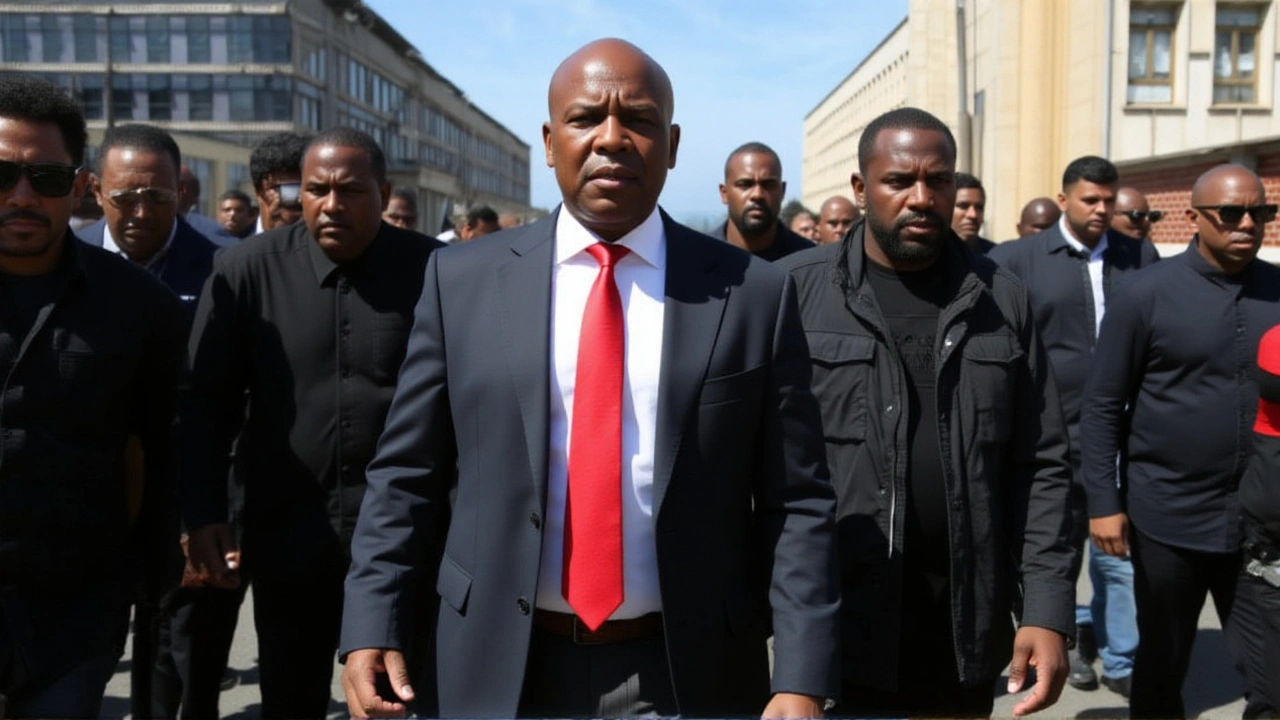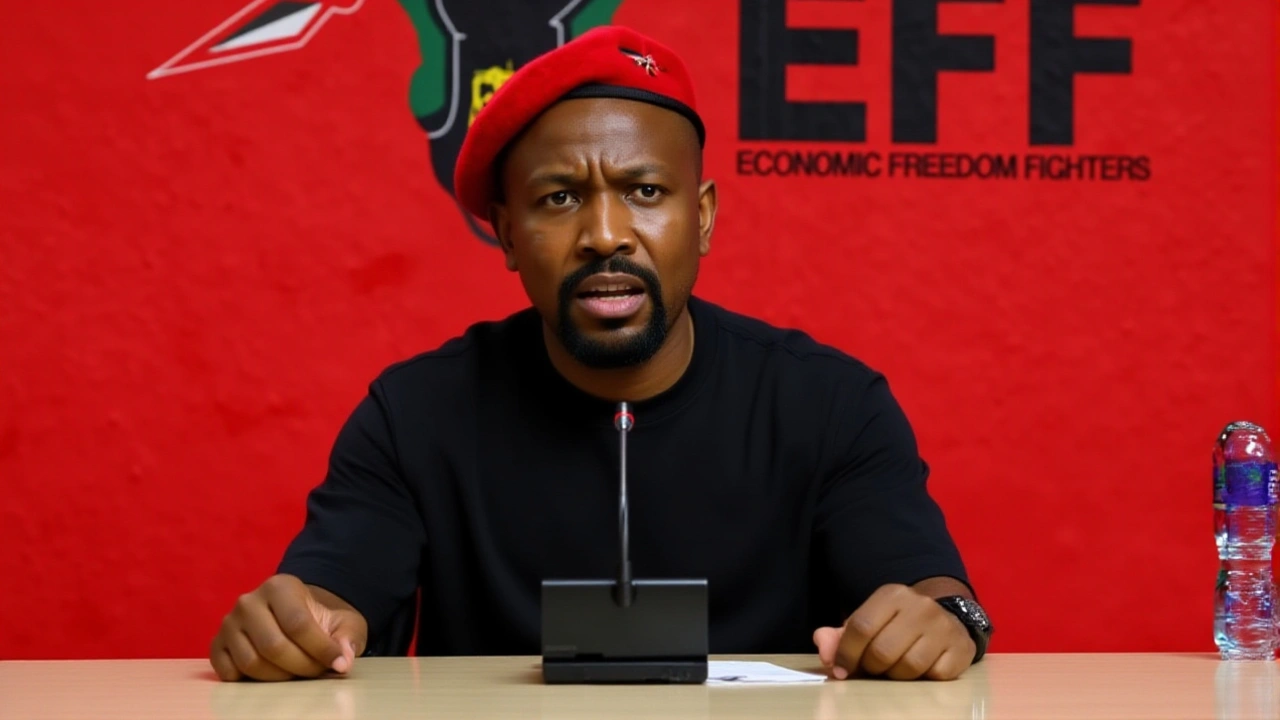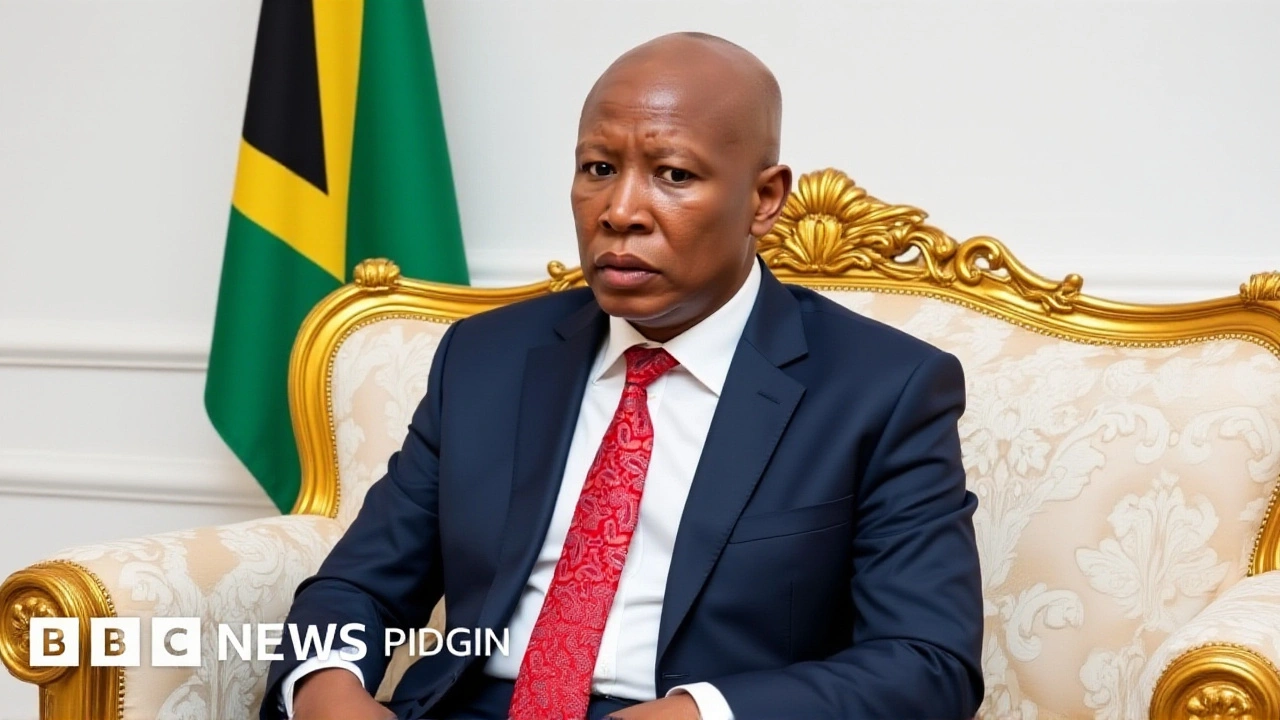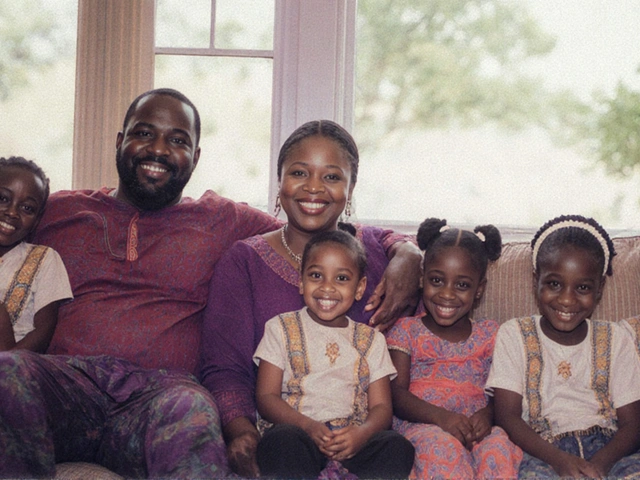When Julius Malema, leader of the Economic Freedom Fighters (EFF), was found guilty of hate speech last month, South Africa’s political simmer jumped to a boil.
The Equality Court handed down the verdict on 12 August 2025, citing remarks Malema made at a rally in Cape Town in March 2022. The party announced today that it will lodge an immediate appeal, signalling a fresh legal showdown that could reshape the nation’s approach to political speech.
Background: A Trail of Controversy
Malema’s run‑ins with the courts are nothing new. Back in 2011, the watchdog group AfriForum sued him and the African National Congress (ANC) over the song “Dubula iBhunu.” The South Gauteng High Court, sitting as the Equality Court, declared the song hate speech and issued an order barring its performance.
Both parties initially shrugged it off, claiming the order wasn’t enforceable. Later, Malema, speaking in his personal capacity, and ANC secretary‑general Gwede Mantashe entered settlement talks ordered by the Supreme Court of Appeal (SCA). The resulting settlement, now an SCA order, effectively replaced the original injunction and forced both the ANC and Malema to stop singing “Dubula iBhunu” or anything similar.
That episode set a legal precedent: political leaders could be held accountable for incendiary language, even when it’s wrapped in cultural expression.
The 2022 Cape Town Rally and the 2025 Conviction
Fast‑forward to March 2022. Malema delivered a fiery address outside the historic Rivonia Junction venue in Cape Town, urging supporters to "protect our people" from what he described as "foreign exploitation." His phrasing, which included references to land ownership and race‑based economic redistribution, was later deemed to cross the line into hate speech under the Promotion of Equality and Prevention of Unfair Discrimination Act (PEPUDA).
During the August 2025 hearing, the presiding judge, Judge Thandiwe Dlamini, noted that Malema’s words "incited hostility against a protected group and threatened social cohesion." The court fined the EFF R150,000 and scheduled sentencing for 23 January 2026.
Legal analyst Thandiwe Nkosi of the University of Cape Town told our desk, "This conviction is the third major hate‑speech ruling against Malema. It signals that the judiciary is willing to enforce the spirit of PEPUDA, even against powerful politicians."
EFF’s Appeal Strategy
The EFF has already filed the notice of appeal, arguing that the Equality Court misapplied the legal test for hate speech. In a statement released on 20 August, the party’s legal team, headed by Lindiwe Rabale, said the ruling "undermines freedom of political expression" and threatens the party’s ability to "articulate radical economic transformation."
Rabale’s brief points to two key pillars: first, that the speech was "politically charged, not racially hostile," and second, that the court ignored the contextual nuance of South Africa’s land reform debate. If the appeal succeeds, it could carve out a narrower definition of hate speech, offering politicians a wider berth.

Potential Impact on South African Politics
Should the appellate court uphold the conviction, Malema could face a six‑month prison term, a hefty fine, and possible disqualification from parliament. The EFF, which currently holds 44 seats in the National Assembly, would need to shuffle its leadership chart and could see a dip in voter confidence ahead of the 2029 general election.
Conversely, a successful appeal might embolden other opposition parties to test the limits of PEPUDA, potentially sparking a wave of litigation that could clog the courts and polarise public opinion.
International observers are watching closely. The African Union’s Office of the High Commissioner for Human Rights released a brief note on 22 August, urging South Africa to "balance the protection of vulnerable groups with the fundamental right to political speech."
Key Facts at a Glance
- Conviction date: 12 August 2025
- Sentencing: 23 January 2026
- Rally location: Cape Town, March 2022
- Previous related case: 2011 “Dubula iBhunu” song ruling
- Appeal filed: 20 August 2025 by the Economic Freedom Fighters
What Comes Next?
The appellate hearing is slated for early March 2026 at the Supreme Court of Appeal. Both sides have submitted written arguments, and oral submissions are expected to run over two days.
In the meantime, the EFF is rallying its base, framing the appeal as a fight against “judicial overreach.” Meanwhile, civil‑society groups such as the South African Human Rights Commission have called for a "national dialogue" on how hate‑speech laws intersect with political activism.
Regardless of the outcome, the case underscores a broader tension in South Africa: how to protect historically marginalized communities without stifling the bold discourse needed for transformation.

Frequently Asked Questions
How could the conviction affect Julius Malema’s political career?
If the conviction is upheld, Malema faces a possible six‑month jail term and a R150,000 fine, which could trigger a parliamentary disqualification under the Constitution. Even a suspended sentence might damage his credibility among EFF supporters and moderate voters ahead of the 2029 elections.
What legal precedent does the 2011 ‘Dubula iBhunu’ case set?
The 2011 ruling was the first time a South African court declared a political song hate speech, establishing that cultural expressions can be subject to PEPUDA. It also showed that settlement agreements, once endorsed by the Supreme Court of Appeal, carry the same weight as initial judgments.
Why does the EFF claim the ruling infringes on free speech?
The party argues that the Equality Court applied a too‑broad definition of hate speech, ignoring the political context of land‑reform debates. Their legal team insists that criticism of economic policies should not be automatically equated with hostility toward a protected group.
What role does the Supreme Court of Appeal play in the upcoming hearing?
The SCA will review whether the Equality Court correctly interpreted PEPUDA. It will consider written briefs from both the EFF and the government, plus any precedent‑setting cases since the 2011 decision, before delivering a binding judgment that could overturn or uphold the conviction.
How might this case influence future hate‑speech legislation?
A definitive ruling could either tighten the legal definition of hate speech, limiting political rhetoric, or broaden protections for political expression. Lawmakers and civil‑society groups are already calling for a review of PEPUDA to clarify its reach in the political arena.






Elizabeth Bennett
October 3, 2025 AT 08:13It's good to see the EFF actually taking the legal route instead of just blasting more rhetoric. The courts have set a precedent before, so an appeal could clarify the line between political speech and hate speech. If the appeal narrows that line, it might give future politicians more room to debate land reform without fear of criminal charges. At the same time, we can't ignore the lived experiences of groups who've faced historic oppression. A balanced approach would protect both free speech and vulnerable communities.
linda menuhin
October 3, 2025 AT 16:00i think its wierd how every time someone says somethin about land they get sued. wtf? maybe we need a new word for "talking about history" that cant be used in court. its kinda like the law is trying to put a mute button on real talk. but hey maybe thats the point, keep the peace, right?
Jeff Abbott
October 4, 2025 AT 00:20Listen, the whole thing reeks of a power play. The judiciary loves to look like they're protecting minorities while they actually shield the status quo. If Malema's speech really posed a threat, why let him get a fine and not an actual prison sentence? It's a classic case of selective enforcement: punish the loudest dissenter and let the elites off the hook. This is exactly the kind of legal theater that keeps the real issues buried.
Quinton Merrill
October 4, 2025 AT 08:40Interesting to watch how the legal arguments unfold. The EFF's claim that the speech was "politically charged" rather than "racially hostile" could set an important precedent. 🤔 If the court accepts that nuance, it might widen the space for robust policy debate. But I also worry about the message it sends to marginalized communities who feel targeted by such rhetoric. Let's hope the judges stay grounded in the Constitution's spirit. 🚀
Linda Lawton
October 4, 2025 AT 17:00Honestly, this whole drama feels like a scripted reality show. One minute they're yelling about "foreign exploitation," the next they're fined for hate speech. It's a classic case of the same old power games, just with new costumes. If the appeal succeeds, it'll be a win for the "freedom of speech" crowd, but the real victims will still be the people who endure daily discrimination. Stay woke, folks.
Ashley Bradley
October 5, 2025 AT 01:20The legal saga surrounding Julius Malema's conviction is emblematic of South Africa's ongoing struggle to reconcile its revolutionary aspirations with the rule of law. On one hand, the Equality Court's decision underscores a commitment to curbing language that fuels division, especially in a nation still grappling with the legacies of apartheid. On the other hand, the EFF's appeal raises profound questions about the boundaries of legitimate political discourse, particularly when it intersects with deeply contentious issues such as land reform and economic redistribution. It is essential to recognize that the jurisprudence established in the 2011 "Dubula iBhunu" case set a precedent that cultural expression can be subject to hate‑speech statutes, thereby expanding the legal toolkit available to protect vulnerable groups. However, that precedent also introduced a tension: political leaders, whose role is to challenge entrenched power structures, may find themselves constrained by statutes originally designed to address more overtly hostile conduct. The upcoming appellate hearing will likely probe whether the Equality Court applied the correct legal test, as outlined in PEPUDA, or whether it overreached by conflating political criticism with racial animus. Moreover, the court will have to consider the contextual backdrop of South Africa's land reform debate, a conversation that is intrinsically linked to historical injustice but also prone to polarising rhetoric. If the appellate judges side with the EFF, they may carve out a narrower definition of hate speech that safeguards political speech while still protecting marginalized communities. Conversely, upholding the conviction could signal a judicial willingness to enforce a broader interpretation, potentially chilling robust public debate. Either outcome will reverberate beyond the immediate parties, influencing how civil society groups, opposition parties, and future governments frame their policy arguments. It may also affect the public's perception of the judiciary's impartiality, either bolstering confidence in its independence or fueling narratives of judicial overreach. Ultimately, the case forces us to confront a central paradox: how do we protect historically oppressed populations without stifling the bold, sometimes uncomfortable, discourse required for genuine transformation? The answer will shape South Africa's democratic maturity for years to come.
Joe Delaney
October 5, 2025 AT 09:40That fine is insane.
Ruben Vilas Boas
October 5, 2025 AT 18:00Solid points all around. If the appeal narrows the hate‑speech definition, it could give politicians more leeway, but we have to watch that it doesn't become a free‑pass for hate. Let's keep the conversation focused on how to protect both speech and vulnerable groups.
George Thomas
October 6, 2025 AT 02:20The procedural aspects of this case are fascinating. The interplay between the Equality Court and the Supreme Court of Appeal will test the consistency of South African jurisprudence on hate speech. It remains to be seen whether the higher court will uphold the lower court's interpretation of PEPUDA or adopt a more restrictive view.
Michelle Linscomb
October 6, 2025 AT 10:40The EFF's framing of this as "judicial overreach" feels a bit hyperbolic, especially when real communities have expressed feeling targeted by such rhetoric. While we should defend political expression, we must also acknowledge the harm that incendiary language can cause.
John McDonald
October 6, 2025 AT 19:00Great analysis! Leveraging legal frameworks like PEPUDA while maintaining policy‑driven dialogue is key for sustainable governance.